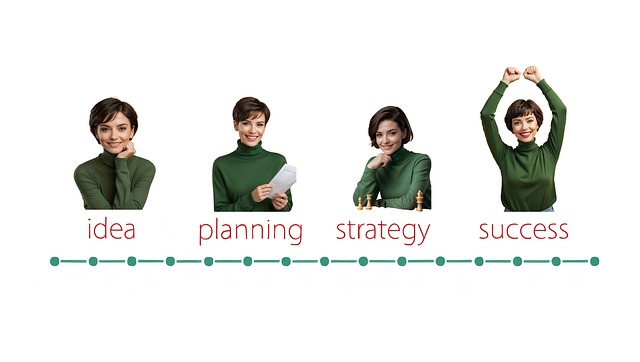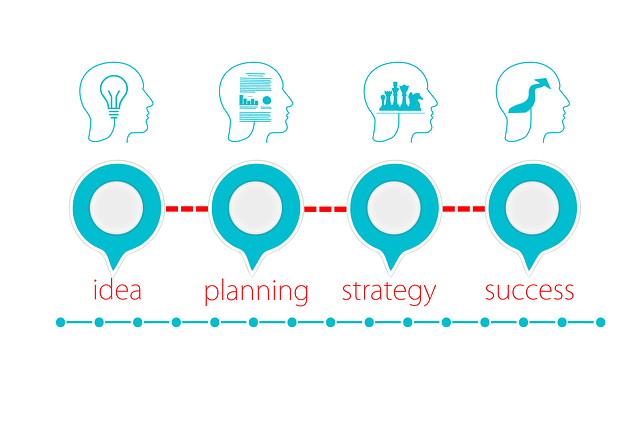UK Academic Journals Translation Services are essential for making academic content accessible globally, breaking language barriers and facilitating cross-cultural knowledge exchange. They ensure complex research is effectively conveyed in diverse languages, promoting inclusivity and advancing education. Quality translations preserve integrity, enable equal access for non-native English speakers, and empower students & researchers from diverse backgrounds to contribute to global academic discourse. Future advancements in AI-powered translation will further democratize access, revolutionizing accessibility in academia.
In an increasingly globalized academic landscape, ensuring accessibility of research is paramount. This article explores enhancing access to academic content through innovative solutions like translation services for UK journals, expanding reach for global audiences. We delve into understanding accessibility barriers, quality standards for journal translations, and best practices for inclusive publishing. Discover how tech-driven trends promise to revolutionize accessibility in higher education, highlighting the impact of accurate translation on knowledge dissemination worldwide, including UK academic journals.
- Understanding Accessibility Barriers in Academic Content
- The Role of Translation Services for UK Journals
- Increasing Reach: Translating Research for Global Audiences
- Ensuring Quality: Standards for Journal Translation
- Overcoming Language Challenges in Higher Education
- Best Practices for Accessible Academic Publishing
- Impact of Accurate Translation on Knowledge Dissemination
- Future Trends: Tech-Driven Solutions for Accessibility
Understanding Accessibility Barriers in Academic Content

Many students and researchers face accessibility barriers when engaging with academic content, particularly in the realm of UK academic journals. These barriers can significantly impact learning and knowledge sharing, especially for individuals with disabilities or those for whom English is a second language. Common accessibility challenges include complex jargon and technical terminology that are not readily understandable to all readers.
Translation services play a vital role in enhancing accessibility by providing multilingual support for academic content. UK Academic Journals Translation Services cater to diverse linguistic needs, ensuring that research findings and scholarly discussions are accessible to a broader audience. This initiative fosters inclusivity, encourages knowledge exchange across cultural boundaries, and ultimately contributes to the advancement of education and scientific understanding.
The Role of Translation Services for UK Journals

Translation services play a pivotal role in enhancing accessibility to UK academic journals, breaking down language barriers and enabling global researchers to contribute and benefit from scholarly knowledge. With an increasing number of researchers and institutions internationally, the demand for accurate and culturally sensitive translation has risen significantly.
UK Academic Journals Translation Services facilitate this process by providing professional linguists who are experts in scientific and academic terminology. These services ensure that complex ideas and research findings are conveyed effectively across different languages, fostering a more inclusive academic community. By making journal articles accessible to a diverse readership, these translation services contribute to the global dissemination of knowledge and the advancement of research.
Increasing Reach: Translating Research for Global Audiences

In today’s globalized academic landscape, enhancing accessibility is paramount to ensure knowledge dissemination on a worldwide scale. One significant aspect is translating research findings from UK academic journals into multiple languages. This strategy expands the reach of scholarly work, making it accessible to readers across diverse linguistic backgrounds. By leveraging professional translation services, researchers can bridge the gap between language barriers and foster international collaboration.
Global audiences, including scholars, students, and policymakers, stand to benefit from this initiative. Translated articles not only increase visibility but also encourage cultural exchange and cross-border research partnerships. UK Academic Journals Translation Services play a pivotal role in this process, ensuring accuracy and maintaining the integrity of academic content while making it available to an international community eager to engage with cutting-edge research.
Ensuring Quality: Standards for Journal Translation

Ensuring quality in journal translation is paramount, especially as UK academic journals aim to reach a global audience. Professional translation services dedicated to academic content must adhere to stringent standards to maintain the integrity of research and knowledge dissemination. These standards include precision in terminology, grammatical accuracy, and cultural sensitivity. Translators should possess expertise in both the source and target languages, understanding complex scientific and scholarly concepts.
UK Academic Journals Translation Services should employ rigorous quality assurance processes, such as peer review, to guarantee the reliability of translations. This meticulous approach ensures that academic content is not only accessible but also preserves its original meaning and context, fostering a global community of informed scholars and researchers.
Overcoming Language Challenges in Higher Education

In higher education, overcoming language challenges is paramount to ensure equal access to academic content. Many students in the UK bring diverse linguistic backgrounds, often requiring support to fully engage with course materials. This is where UK Academic Journals Translation Services play a vital role. These services offer professional translations that bridge the gap between non-native English speakers and the core curriculum, facilitating their understanding and participation.
By providing high-quality translation, these services not only help students access essential information but also promote inclusivity within academic institutions. Accurate translations of academic journals, textbooks, and other resources enable non-native English speakers to contribute meaningfully to discussions, participate in research collaborations, and ultimately enhance their educational experience to match their peers.
Best Practices for Accessible Academic Publishing

To ensure academic content is accessible to a diverse range of readers, publishers should adopt best practices that facilitate inclusivity. One key practice is providing multiple formats for documents, such as offering PDFs alongside text-to-speech and braille versions. This caters to users with visual impairments or dyslexia. Additionally, using clear and concise language, avoiding jargon, and incorporating subheadings helps all readers navigate the content more easily.
UK academic journals can greatly benefit from translation services to make their research global. Making content multilingual expands the reach of scholarly work, enabling non-English speaking researchers and students to access and contribute to academic discourse. Furthermore, employing screen reader compatibility, alt text for images, and captions for videos ensures that individuals relying on assistive technologies can fully engage with digital academic materials.
Impact of Accurate Translation on Knowledge Dissemination

In the quest for enhancing accessibility to academic content, accurate translation plays a pivotal role in knowledge dissemination. UK Academic Journals Translation Services have become indispensable tools, bridging the language gap that often prevents scholars and students from diverse linguistic backgrounds from fully engaging with academic literature. By providing high-quality translations, these services ensure that research findings, theories, and insights are accessible to a broader global audience.
This accessibility is not merely about words on a page; it empowers international collaborations, fosters interdisciplinary discussions, and enriches educational experiences. Accurate translation allows researchers from different parts of the world to build upon each other’s work, thereby accelerating scientific progress and innovation. Moreover, it opens doors for students in non-English speaking countries to access top-tier academic content, promoting a more inclusive and diverse scholarly community on a global scale.
Future Trends: Tech-Driven Solutions for Accessibility

The future of accessibility in academia is poised for a tech-driven revolution, offering unprecedented opportunities to enhance inclusion and knowledge sharing. One of the most significant trends is the integration of advanced translation services, particularly tailored for UK academic journals. With the aid of artificial intelligence (AI) and machine learning, these services can automatically translate complex research papers into multiple languages, breaking down geographical barriers and making cutting-edge research accessible to a global audience.
This technological advancement promises to democratize access to knowledge, enabling students and researchers from diverse linguistic backgrounds to contribute and benefit from academic discourse. Moreover, AI-powered accessibility tools are expected to improve not only translation accuracy but also formatting consistency, ensuring that translated content adheres to the high standards of UK academic journals while maintaining its integrity and readability.
Accessibility in academic content is no longer a niche consideration but a vital component of knowledge dissemination. By overcoming language barriers through advanced translation services for UK academic journals and globalizing research reach, we can ensure that academic publications are inclusive and accessible to diverse audiences worldwide. As technology advances, tech-driven solutions will play an increasingly significant role in enhancing accessibility, making it easier for students, researchers, and educators from all backgrounds to engage with academic content.
